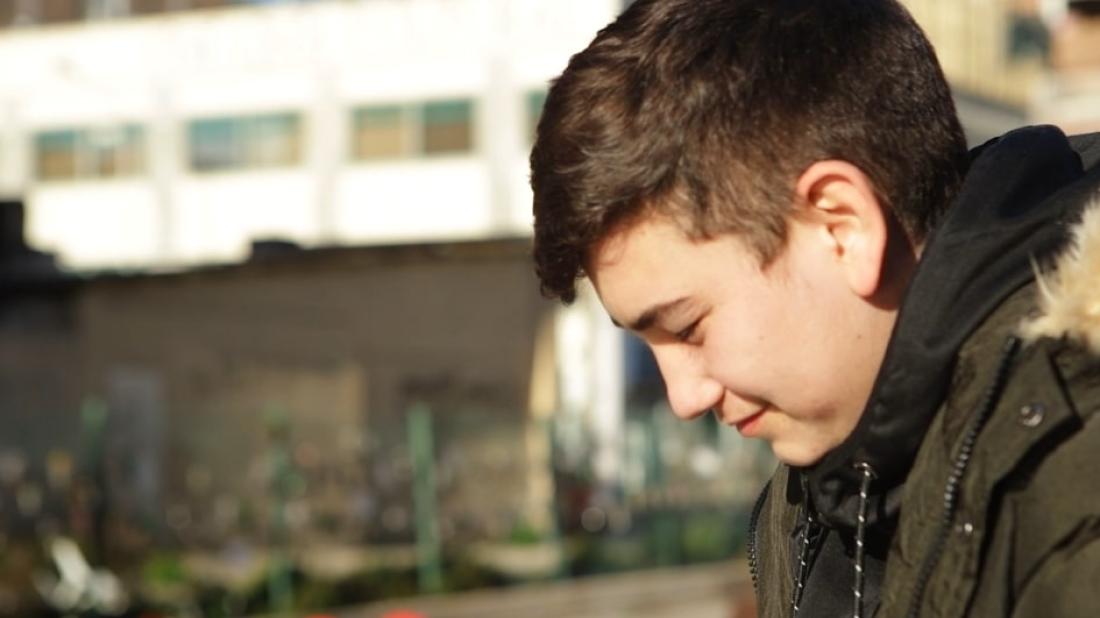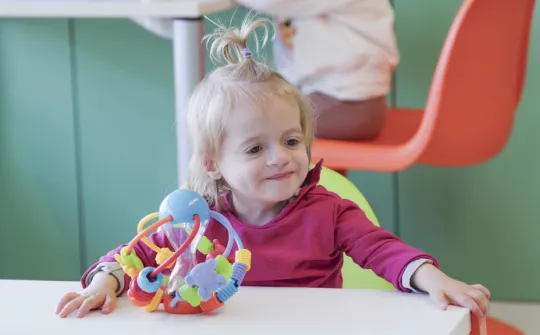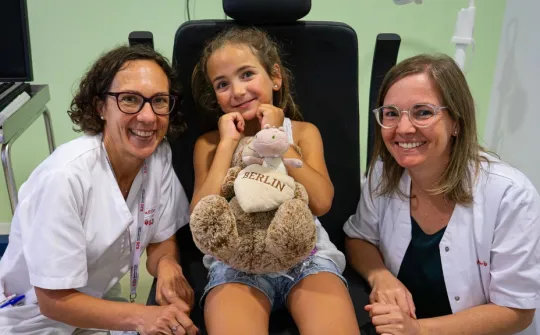
One of the patients treated at SJD Barcelona Children's Hospital as part of the Novartis CAR-T 19 clinical trial explains how the treatment has allowed him to return to normality
David was diagnosed with acute lymphoblastic leukaemia (ALL) when he was just five years old. Following chemotherapy treatment, he suffered a relapse at the age of 11 and underwent haematopoietic stem cell transplantation. This enabled his relative recovery for a couple of years, but when he was 13 years old, he got more bad news: another relapse, forcing the medical team to explore one last treatment option.
At this point, the hematologist Susana Rives suggested to David and his family that he could participate in the clinical trial with CAR-T 19 immunotherapy. CAR-T 19 immunotherapy is an experimental treatment that SJD Barcelona Children's Hospital was trialling at the time, along with the pharmaceutical company Novartis, in patients who had already tried previous therapies for their leukaemia but had not improved. Expectations for curing patients who have suffered a second relapse—who have usually already undergone chemotherapy or transplant treatments—are generally low with current treatments. This form of immunotherapy, however, allowed chances for improvement in children and young adults to be explored.
David's case, as Rives explains, is paradigmatic: "he had not responded as expected to intensive chemotherapy treatments or transplantation." The patient was referred from another hospital in Catalonia because he met the requirements to receive the immunotherapy infusion. At the time, Sant Joan de Déu was participating in the trial on both a European and global scale. Our hospital was among those providing the largest patient samples and one of the first to use the treatment in Spain, back in 2016.
CAR-T 19, an immunotherapy that requires time to assess the results
Treatment with CAR-T 19 consists in extracting the patient's T cells or lymphocytes, processing them in the laboratory and equipping them with a receptor that recognises leukaemia cells through genetic manipulation. In short, the patient's own (modified) cells are transferred back to them in order to combat the tumour. The immunotherapy infusion involves returning the modified lymphocytes to the patient in order to later observe the child's reaction and to respond to any possible side effects of the therapy.
In David's case, he had a fever with no severe complications (which would have been treated in the ICU of the same hospital). "They told us that the spike in his temperature was a good sign in his case," says Lidia, David's mother. "So as long as the doctor was glad with it, so were we. It was strange because we were very hopeful and worried all at the same time."
A few weeks later they observed the child's positive progress, which, over the months and years, has been consolidated. David is now 16 and is still playing football, a sport that he had to give up for many years as a consequence of his leukaemia. He was also able to go on the end-of-year school trip to London and is now studying with the aim of training as a nurse: "I would love to be able to help children who spend a lot of time in hospitals, just like I did. I also want the CAR-T 19 treatment to become available to as many children and teenagers as possible. I know it's difficult now, but it would be great because this form of immunotherapy worked for me", concludes David.



